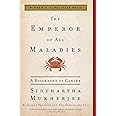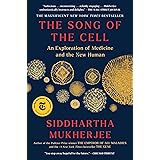
Enjoy fast, free delivery, exclusive deals, and award-winning movies & TV shows with Prime
Try Prime
and start saving today with fast, free delivery
Amazon Prime includes:
Fast, FREE Delivery is available to Prime members. To join, select "Try Amazon Prime and start saving today with Fast, FREE Delivery" below the Add to Cart button.
Amazon Prime members enjoy:- Cardmembers earn 5% Back at Amazon.com with a Prime Credit Card.
- Unlimited Free Two-Day Delivery
- Streaming of thousands of movies and TV shows with limited ads on Prime Video.
- A Kindle book to borrow for free each month - with no due dates
- Listen to over 2 million songs and hundreds of playlists
- Unlimited photo storage with anywhere access
Important: Your credit card will NOT be charged when you start your free trial or if you cancel during the trial period. If you're happy with Amazon Prime, do nothing. At the end of the free trial, your membership will automatically upgrade to a monthly membership.
Buy new:
-33% $13.49$13.49
Ships from: Amazon.com Sold by: Amazon.com
Save with Used - Very Good
$9.87$9.87
Ships from: Amazon Sold by: Jenson Books Inc

Download the free Kindle app and start reading Kindle books instantly on your smartphone, tablet, or computer - no Kindle device required.
Read instantly on your browser with Kindle for Web.
Using your mobile phone camera - scan the code below and download the Kindle app.

OK
 Audible sample Sample
Audible sample Sample 


The Gene: An Intimate History Paperback – May 2, 2017
Purchase options and add-ons
The basis for the PBS Ken Burns Documentary The Gene: An Intimate History
From the Pulitzer Prize–winning author of The Emperor of All Maladies—a fascinating history of the gene and “a magisterial account of how human minds have laboriously, ingeniously picked apart what makes us tick” (Elle).
“Sid Mukherjee has the uncanny ability to bring together science, history, and the future in a way that is understandable and riveting, guiding us through both time and the mystery of life itself.” —Ken Burns
“Dr. Siddhartha Mukherjee dazzled readers with his Pulitzer Prize-winning The Emperor of All Maladies in 2010. That achievement was evidently just a warm-up for his virtuoso performance in The Gene: An Intimate History, in which he braids science, history, and memoir into an epic with all the range and biblical thunder of Paradise Lost” (The New York Times). In this biography Mukherjee brings to life the quest to understand human heredity and its surprising influence on our lives, personalities, identities, fates, and choices.
“Mukherjee expresses abstract intellectual ideas through emotional stories…[and] swaddles his medical rigor with rhapsodic tenderness, surprising vulnerability, and occasional flashes of pure poetry” (The Washington Post). Throughout, the story of Mukherjee’s own family—with its tragic and bewildering history of mental illness—reminds us of the questions that hang over our ability to translate the science of genetics from the laboratory to the real world. In riveting and dramatic prose, he describes the centuries of research and experimentation—from Aristotle and Pythagoras to Mendel and Darwin, from Boveri and Morgan to Crick, Watson and Franklin, all the way through the revolutionary twenty-first century innovators who mapped the human genome.
“A fascinating and often sobering history of how humans came to understand the roles of genes in making us who we are—and what our manipulation of those genes might mean for our future” (Milwaukee Journal-Sentinel), The Gene is the revelatory and magisterial history of a scientific idea coming to life, the most crucial science of our time, intimately explained by a master. “The Gene is a book we all should read” (USA TODAY).
- Print length608 pages
- LanguageEnglish
- PublisherScribner
- Publication dateMay 2, 2017
- Dimensions6.13 x 1.5 x 9.25 inches
- ISBN-10147673352X
- ISBN-13978-1476733524
The Amazon Book Review
Book recommendations, author interviews, editors' picks, and more. Read it now.
Frequently bought together

More items to explore
 The human genome contains about between twenty-one and twenty-three thousand genes that provide the master instructions to build, repair, and maintain humans.Highlighted by 515 Kindle readers
The human genome contains about between twenty-one and twenty-three thousand genes that provide the master instructions to build, repair, and maintain humans.Highlighted by 515 Kindle readers There is no such thing as perfection, only the relentless, thirsty matching of an organism to its environment. That is the engine that drives evolution.Highlighted by 472 Kindle readers
There is no such thing as perfection, only the relentless, thirsty matching of an organism to its environment. That is the engine that drives evolution.Highlighted by 472 Kindle readers Without equality, he argued, eugenics would degenerate into yet another mechanism by which the powerful could control the weak.Highlighted by 437 Kindle readers
Without equality, he argued, eugenics would degenerate into yet another mechanism by which the powerful could control the weak.Highlighted by 437 Kindle readers
From the Publisher

|

|
|
|---|---|---|
| The Song of the Cell | The Emperor of All Maladies | |
| Customer Reviews |
4.7 out of 5 stars
2,389
|
4.7 out of 5 stars
9,281
|
| Price | $12.19$12.19 | $12.08$12.08 |
| More books from the Pulitzer Prize-winning author | “Blends cutting-edge research, impeccable scholarship, intrepid reporting, and gorgeous prose...a literary page-turner” (Oprah Daily) | Winner of the Pulitzer Prize, this New York Times bestseller is a magnificent, profoundly humane “biography” of cancer |
Editorial Reviews
Review
“The Gene is both expansive and accessible . . . . In The Gene, Mukherjee spends most of his time looking into the past, and what he finds is consistently intriguing. But his sober warning about the future might be the book’s most important contribution.” —San Francisco Chronicle
“The Gene boats an even more ambitious sweep of human endeavor than its predecessor, The Emperor of All Maladies. . . . Mukherjee punctuates his encyclopedic investigations of collective and individual heritability, and our closing in on the genetic technologies that will transform how we will shape our own genome, with evocative personal anecdotes, deft literary allusions, wonderfully apt metaphors, and an irrepressible intellectual brio.” —Elle
"[Mukherjee] expresses abstract intellectual ideas through emotional stories . . . .[and] swaddles his medical rigor with rhapsodic tenderness, surprising vulnerability, and occasional flashes of pure poetry.” —Washington Post
“Compassionate, tautly synthesized, packed with unfamiliar details about familiar people.” —The New York Times
“A well-written, accessible, and entertaining account of one of the most important of all scientific revolutions, one that is destined to have a fundamental impact on the lives of generations to come. The Gene is an important guide to that future.” —The Guardian
“Reading The Gene is like taking a course from a brilliant and passionate professor who is just sure he can make you understand what he’s talking about. . . . Excellent.” —Seattle Times
“A fascinating and often sobering history of how humans came to understand the roles of genes in making us who we are—and what our manipulation of those genes might mean for our future. . . . The Gene captures the scientific method—questioning, researching, hypothesizing, experimenting, analyzing—in all its messy, fumbling glory, corkscrewing its way to deeper understanding and new questions.” —Milwaukee Journal-Sentinel
“Dr Mukherjee uses personal experience to particularly good effect. . . . Powerful.” —The Economist
“As compelling and revealing as [The Emperor of All Maladies]. . . . On one level, The Gene is a comprehensive compendium of well-told stories with a human touch. But at a deeper level, the book is far more than a simple science history.” —Dallas Morning News
“Mukherjee’s visceral and thought-provoking descriptions... clearly show what he is capable of, both as a writer and as a thinker.” —Nature
“His topic is compelling. . . . And it couldn’t have come at a better time.” —Boston Globe
"Compelling... Highly recommended." —Booklist, starred review
“Sobering, humbling, and extraordinarily rich reading from a wise and gifted writer who sees how far we have come—but how much farther far we have to go to understand our human nature and destiny.” —Kirkus, starred review
"Mukherjee deftly relates the basic scientific facts about the way genes are believed to function, while making clear the aspects of genetics that remain unknown. He offers insight into both the scientific process and the sociology of science... By relating familial information, Mukherjee grounds the abstract in the personal to add power and poignancy to his excellent narrative." —Publishers Weekly, starred review
About the Author
Product details
- Publisher : Scribner; Reprint edition (May 2, 2017)
- Language : English
- Paperback : 608 pages
- ISBN-10 : 147673352X
- ISBN-13 : 978-1476733524
- Item Weight : 1.35 pounds
- Dimensions : 6.13 x 1.5 x 9.25 inches
- Best Sellers Rank: #17,101 in Books (See Top 100 in Books)
- #6 in Genetics (Books)
- #16 in History of Medicine (Books)
- #52 in History of Civilization & Culture
- Customer Reviews:
About the author

Siddhartha Mukherjee is a cancer physician and researcher. He is an assistant professor of medicine at Columbia University and a staff cancer physician at the CU/NYU Presbytarian Hospital. A former Rhodes scholar, he graduated from Stanford University, University of Oxford (where he received a PhD studying cancer-causing viruses) and from Harvard Medical School. His laboratory focuses on discovering new cancer drugs using innovative biological methods. Mukherjee trained in cancer medicine at the Dana Farber Cancer Institute of Harvard Medical School and was on the staff at the Massachusetts General Hospital. He has published articles and commentary in such journals as Nature, New England Journal of Medicine, Neuron and the Journal of Clinical Investigation and in publications such as the New York Times and the New Republic. His work was nominated for Best American Science Writing, 2000 (edited by James Gleick). He lives in Boston and New York with his wife, Sarah Sze, an artist, and with his daughter, Leela.
His author website is www.siddharthamukherjee.me
Customer reviews
Customer Reviews, including Product Star Ratings help customers to learn more about the product and decide whether it is the right product for them.
To calculate the overall star rating and percentage breakdown by star, we don’t use a simple average. Instead, our system considers things like how recent a review is and if the reviewer bought the item on Amazon. It also analyzed reviews to verify trustworthiness.
Learn more how customers reviews work on AmazonReviews with images
-
Top reviews
Top reviews from the United States
There was a problem filtering reviews right now. Please try again later.
The “Missing Science of Heredity” is a chapter covering the oldest history of the gene - the discovery (and re-discovery) of genes. It may be split into two parts. The first part covers the theories that existed for heredity in the past (preformation), and the observations of the leading scientists at the time (Pythagoras, Aristotle, Mendel, Darwin, and others, progressively moving forward in time). It covers the issues with initial theories, and shows consequent theories, proved from correlation and evidence (pangenesis) and terms created at the time (composites, alleles, dominant, recessive, gemmules), and the eventual discovery of evolution.
The second part of the chapter covers the more - well - unnatural - and human - history of the gene. After discovering natural selection, the idea was created that unnatural selection could be induced, eliminating more undesirable traits. Eugenics. It covers how the word gene was christened from pangene, and genotypes. The beginning of eugenics is covered in this part of the chapter, as well as racial purity and ‘cleansing’, of which two types are detailed.
“In the Sum of the Parts, There Are Only the Parts” is a chapter covering how scientists connected environments and physical body parts to the abstract concept of the gene. Protein, form, function, genotypes, and phenotypes are slowly linked together by brilliant minds. From Dobzhansky to Watson and Crick, this chapter also elaborates on how these scientists, though brilliant, may not have been the best people. This chapter also shows how discrepancies, or ‘mistakes’ in the genome can cause dangerous diseases. To sum it up, it covers inheritance.
It also covers eugenics, and the danger of falling onto the path of thinking you can fix the genome by editing it. It elaborates on the horrific experiences of concentration camps. It also covers how DNA and genes were discovered separately and only linked together later as two parts of the same whole.
“The Dreams of Geneticists'' is a chapter covering the sequencing and cloning of genes. Genetic hybrids are covered in this chapter along with terms such as recombination, splicing, exons, and introns, while also including key scientists. Composition, decomposition, and cloning of genes are covered. In this chapter there’s also a captioned selection of pictures that are relevant to genes.
“The Proper Study of Mankind Is Man” is a chapter covering deeper gene editing, and delving deeper into connections between diseases and genes from Parkinson’s disease to cystic fibrosis. It also gives information on how the human genome was finally sequenced, and the trouble in fragmented overlapping of the human genome. It shows the exact ways gene-caused diseases are caused hereditarily, and/or the mutations which cause them.
After a brief skimming of neo-eugenics, the chapter also goes into how scientists and doctors have tried to cure these gene-caused diseases, both by preventing them before they happen and gene editing after they have happened. The chapter is completed with a subchapter: The Book of Man (in Twenty-Three Volumes).
Through the Looking Glass is a chapter covering how genes affect identity - the effect of genes on sexuality and gender identity, and how environments also may or may not contribute to these. It also covers the issue of “race based intelligence”, and how stereotypes and standards are enforced leading to more issues, not because of genes. It covers how sex and gender identity may be tied to genes, or of course, may not be, ending with the a diagram of the phenotype-genotype cycle.
Post-Genome is a chapter covering the future of genes and genomics. It covers current gene therapy and gene editing procedures and why it’s flawed, and that may be improved in the future. It covers crossovers between different species, and choosing ideal genes from each species. It also covers diseases caused by a single, relatively common mutation (breast cancer), multiple, untreatable mutations (schizophrenia, bipolar disorder), or a few extremely rare mutations and different and irreversible effects on people afflicted with them (previvors). When should these diseases be fixed?
Positive eugenics is also discussed. Then the book discusses the differences between genetic emancipation - and genetic enhancement, and the questions which come about these two. It discusses the difference between editing a gene and editing the genome. The chapter shows the difference between phenotype and genotype, and how the two are inevitably linked, and it is impossible to have one without the other. It ends with a list of thirteen things to learn from the book in sum.
The first half of the book is indeed a history of mankind’s increasing knowledge and understanding of genes. We initially are told about some of the earliest conjectures regarding life and heredity. They could only be conjectures because there was no ability to see what biological mechanism enabled the passing of physical characteristics on to future generations. But Darwin’s observations and Mendel’s experiments eventually become the impetus for others to theorize and experiment. Still, our ability to better understand was highly dependent upon having the more sophisticated lab equipment capable of showing that which is almost infinitesimally small. But slowly and surely, man’s knowledge and understanding of life and heredity increased. And that history was a very effective way to slowly introduce these gene concepts to the reader as well. (“The Emperor of All Maladies” used this same historical perspective to help the reader learn about cancer.)
Some of the topics especially interesting to me was [1] the effort to determine the structure of DNA (now commonly known as a double-helix), [2] the race to complete the Human Genome Project, [3] the highly questionable arguments presented in the book “The Bell Curve” and [4] some of the early attempts by some groups (including Germany’s WW II Holocaust) to implement eugenics practices without regard of morality.
Another aspect I thought was both impressive and awe-inspiring was that a lot of the early experimental work with genes entailed performing hundreds or even thousands of experiments. Whether working with pea plants, fruit flies, bacteria or other forms of life, the sheer tedium and repetitiousness of working in such a detailed manner for months or years was daunting. That a group of scientists could maintain such focus and patience, all to advance our knowledge of gene a single step at a time, is laudatory.
As one would expect, the author treated the topic of genes as a technical subject with an interesting history behind the discovery of its structure and function. But I noticed a few times where the author had some fun with his writing. Regarding Mendel, he wrote that Mendel was “giving peas a chance”. Regarding a premature (and deadly) attempt at gene therapy, he wrote “the prophets were in it for the profits”. I didn’t notice a lot of these literary tricks, but it was still fun to find such Easter Eggs.
Bottom line: “The Gene: An Intimate History” is a good book, but know that “The Emperor of All Maladies” was an easier read because “Maladies” was such a broad topic that that book could only delve to a certain depth whereas “Gene” is basically about DNA, an incredibly long and complex molecule that required the book to dive to a greater depth.
Top reviews from other countries
He divides the book into six parts, starting from 1865 until the present day, covering the history of genetics ranging from Mendel’s first experiments with peas to genome mapping. He combines significant academic rigour with writing flair while covering the 160-year journey that shaped human understanding of genetics. While parts of the book make heavy reading, Mukherjee keeps most of it interesting and sometimes even manages to convert potentially academic and mundane topics into racy narratives. The section on the race to discover the DNA structure by multiple scientists is one example. Or the race to map the human genome between a private company, Celera and the Human Genome Project. The Book of Man chapter, somewhere in the middle of the book, is particularly interesting with several factoids about human genes.
The most fascinating parts of the book, as to be expected, cover the debate around eugenics, contrasting the benefits of manipulating genetics to avoid serious disabilities in humans, with the potential violation of individual rights and the marginalisation of certain sections that it could ultimately engender. There have been several instances in recent human history that foretell the significant negative implications of eugenics, such as the eugenics movement of the early 20th century, Nazi Germany’s policies and prenatal genetic testing, we need to tread along this path with extreme caution. While Mukherjee does not provide any concrete solutions, the book does make one pause and think.
Ultimately, The Gene turns out to be a great combination of history, science, personal narratives and some guide rails for the future of genetics!
Pros: Rigorous research and a fascinating look at the history of the gene
Cons: Heavy reading in parts
The power of the idea can be seen today in the way personal genomics is revolutionising drug development, therapy and precision oncology – preventing and treating diseases taking into account individual variability in genes , environment and lifestyle. Genomics is being combined with Artificial Intelligence to mine vast amounts of genetic information for new clues about disease, diagnosis or treatment and combining the amazing potential in AI and genetics for opening new horizons in healthcare.
Why is the idea dangerous? Because like the other two profoundly destabilising scientific ideas of the atom and the byte that richochet through the 20th century, the gene has transformed culture, society, politics and language.
Mukhergee goes right back to the first steps in understanding the mechanism and influence of genes with Mendel and Darwin and roller coasters through the 20th century. The scientific progress falls into 4 stages ; the establishment of the cellular basis of heredity: the chromosomes; the molecular basis of hereditary :the double helix; the informational basis : the genetic code and sequencing of the human genome; and finally the era of genomics: the deciphering, reading and understanding the human genome and developing medical applications.
He tells history is told in an extremely personal and readable way describing how scientists built on each others’ contribution with accelerating progress. The book is full of detective stories – for example how it had taken Morgan and his team three decades to collect fifty fly mutants in New England. Then one night in 1926 Muller discovered the effects of radiation and mutated half that number in a single night. Or for example, the detective work of Watson and Crick in discovering the double helix structure of DNA following the groundbreaking work of Linus Pauling, Robert Corey, Maurice Wilkins and Rosalind Franklin.
There is a feeling of balance in Mukhergee’s account of the race for sequencing the human genome, once Muller had discovered the way to copy a human gene in a test tube. The US National Institute of Health (NIH) was chosen as the lead agency to sequence the entire human genome with the US’s DOE and the UK’s Medical Research Council and Wellcome Trust joining the effort. However a little known, pugnacious, single minded neurobiologist at the NIH, Craig Venter, proposed a shortcut to genome sequencing. James Watson and the NIH were appalled at not only at Venter’s technique but at his proposal to patent genes. Scientists at Stanford had patented methods to recombine pieces of DNA to create genetic chimeras, Genetech had patented processes to express proteins such as insulin, Amgen had filed a patent for isolation of erythropoietin using recombinant DNA but nobody had patented a gene or piece of genetic information for its own sake. The race between the US and UK’s public agencies and Craig Venter’s privately funded company Celera was on. The Wellcome Trust doubled its funding and congress threw open the slices of federal funding. But a kind of truce was struck and in 2001 the Human Genome Project and Celera both published their results of the sequencing of the human genome marking the start of the era of genomics.
But the history of the gene is told not just from the angle of scientific discoveries. The social effects of the development of the genetics are explored.
The history of eugenics and its misuse widely in the USA for sterilising imbeciles to improve human intelligence is shown to be based on a totally fallacious theory of hereditary. The Nazi eugenic experiments and the holocaust gruesomely exposed the danger of false science.
The Asilomar meeting in 1973 of leading virologists, genetiscists, biochemists and microbiologists addressed the growing concerns about gene – manipulation techniques. Asilomar II in 1975 got unanimous support for ranking the biohazard risks of genetic recombination.
This has resulted until recently in three unspoken principles which guide the arena of genetic diagnosis and intervention. Firstly diagnostic tests have been restricted to gene variants that are singularly powerful determinants of illness – for examplehighly penetrant mutations like Downs syndrome and cystic fibrosis. Secondly, the diseases caused by these mutations have generally involved extraordinary suffering. Thirdly justifiable interventions have been defined by social and medical consensus, and all interventions have been governed by complete freedom of choice.
But these boundaries could be loosening from these originals - of high penetrance genes, extraordinary suffering and justifiable interventions - to genotype-driven social engineering. Mukherjee provides examples of genetic diagnosis being transformed into clinical and personal realities. Individuals are inspired to get our personal human genome mapped which could lead to determining genetic fitness. Individuals are not so easily governed by guiding principles.
Evidence of the influence this book has had on me is that I have now set out to get my personal genome sequenced!
Comprehensive and well written, with plenty of references to the original research documents quoted if you want to go deeper into the subject.





















